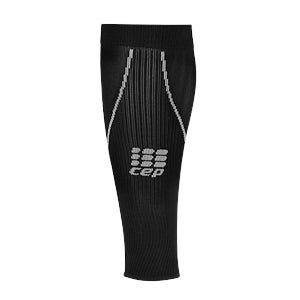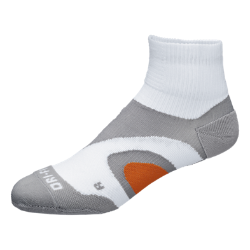Race Report: Twin Cities Marathon
Sometime right around the 10 mile marker, I passed the 3:45 pacing group and actually laughed out loud.
- This just in: 26.2 miles is a long damn way.
- If I was 5 minutes ahead of schedule halfway, and I finished almost 20 minutes behind schedule at the end, well then holy shit about the last half of that marathon, my friends. I hope the wheels didn't hit anybody when they came off!
- Or in other words, sometimes you eat the bear, sometimes the bear calls you a name, you incredulously ask, "what did you say?", and the bear says, "you heard me," before adding under its breath, "bitch", and then when you stand up to take it outside it swiftly ninja kicks you upside the head until you fall flat on your back, then kicks you in the nuts, spits on you when you're doubled over in agony, and kicks you once more in the ass just to embarrass you before it says, "what now, huh? what now?" and when all you can do is groan back a meaningless reply it says, "yeah, that's what I thought" before bending down to steal your wallet.
- This is only my 3rd stand alone marathon, and only my 2nd one where I had any notions to do anything but finish (my first, in 2005, was well over 5 hours). If you count Ironman, it's my 5th marathon, but the standalone is such a different animal from an Ironman marathon that it doesn't even feel like the same race. In Ironman, you're really just trying to slow down least. The adrenaline factors have mostly worn off, and you're also in a much more solitary space - the thousands of other races have all long ago found their own space. In a stand alone, for the first 10 miles at least you're shoulder to shoulder. It's buzzing and bouncing and hectic. You're trying to go fast - so your expectations of yourself and your body are really completely different. But like Ironman, the opportunities to really get it right are kind of few and far between. You can't do a marathon every weekend (well, crazy people can, but I can't), so just as it took me a few years to really understand how I can race my best Olympic distance or Half Iron, for instance (not that I'm done learning, there, not by a long shot), it'll take me a few years for this distance too, I think. The difference is, I can do 5 or 6 Oly races in a summer if I want and really study the distance from every angle. With life and other race goals, and the physical tax the marathon takes, it's a long long time between opportunities with the marathon.
- I am disappointed that I couldn't go faster, because I thought I would. I expected it. It was all but forgone in my mind that I'd at least break 4 hours. I felt ready for it, physically able. And, maybe I was. Or maybe I wasn't - I finished with slightly faster than a 9:30/mile pace, which is pretty consistent with what I was running my long runs in training. But I suspect had I managed my hydration better, it would have been a different day. I don't know if I could've held on for 3:50, but - well, who knows.
- But when I say "disappointment", it requires some perspective. I'm long, long past having much of an ego in this game. I had one race, an Olympic distance race in 2005, I think, where I was bent out of shape about my performance after the race, and it was a particularly douchey way to behave. So it's not that I don't care - I do, I really really do (good Lord look how much I write about this stuff, isn't it obvious?), and I really want to achieve these goals that I believe are realistic, and that I work so hard towards, and I really do get disappointed when I can't or don't meet them, and that disappointment usually festers into something more productive over time - but, well, come on. Have you seen my wife? She's friggin' gorgeous. My daughter is - truly - the most amazing person I know, and at night time she wraps her hand around mine and we sing Sweet Baby James together. I have a very cool business. I have great friends who I laugh with and love. I have seen true despair before and friends, race results ain't it. I do this stuff because I love it. I love everything about it, including the notion of having to bust ass to attain these goals - and that sometimes, maybe just as often as not - I'll need a few shots at it. I love that it's me versus me everytime out, and everytime out I can learn something to apply to the next time. So "disappointed" is in perspective. Suffice to say I mean it when I say it was an amazing day and I had a great time and as much as my legs still feel like I got hit by a truck, I kind of wish I could go do it again this afternoon.
- And suffice to say I will be back, chasing that elusive 4 hours, maybe 3:50.
- Speaking of my legs, holy crap. I've never felt this awful after a race before, not ever, even Ironman. I could hardly move Sunday night. My hip flexors on both legs are just out of control. My quads and calves are killing me. Going up stairs hurts hard. I always know if it's been a nutrition or hydration thing, including workouts on my bike, if I'm just wiped out to uselessness after the race/workout. I was useless Sunday night, that's for sure.
- I'm missing something, and I'm not sure what it is, and I hope to find some answers this offseason. My Ironman marathon got tough because I was having GI issues from hell, and I fell apart in this race because of dehydration. That's two races where I just couldn't hang in there when it got tough. It's pretty easy to run the first 16 miles of a marathon - the last 10 miles is your proof, and this race proved that I have more to prove. Whether it's better endurance, strength, more attention to basics like nutrition and hydration - I need to review everything. Pick it up, hold it in the light, see where it fits in with everything else. At this point I don't feel like it's physical weakness or inability that's holding me back.
- I want to shout out to my friend Steve in a Speedo, who ran the 10 mile race in under 60 minutes - his holy grail this season. Also shouting out to my Pharmie, who raced the marathon, and Kritta, who raced in Milwaukee, and my friend Sara who did the 10 mile this weekend as well.
- Seemed to be some tracking issues - a lot of people weren't receiving all or any of the text updates they should have been. The official results page also seems to be listing my chip time wrong, in the 4:11:xx area, when that's the gun time. So if you check official results, I promise I'm not manufacturing 4 extra minutes to make myself seem so much more awesome.
- Special thanks to Mike and Susan and Todd for coming out and hauling me around for 26 miles, and to Pete for cheering me on as well. I love you guys. To everybody who was tracking me via text, or online, or who shouted out during the race (RVS - great to see you!), or offered support at twitter or facebook or email, thank you so much for your support. I can't even articulate how much it continues to mean to me.
- I have a whole other post on spectating that I'm going to write.
- So, what's next: Not totally sure. I'm going to rest up this week, and then just do cool stuff for the next few weeks. Ride my bike as long as the weather lets me, that kind of thing. Planning on a hard 5k on Thanksgiving morning, and spending my winter busting ass to get faster. By next spring I hope to have the fitness to make plans that include a spring half marathon, some Olympic distance triathlons next summer, and the big bright beacon on the horizon, a Half Iron in July - and you can bet I'll be ambitious with all of those. But for now, rest is the order of the day. Let my legs heal up so I can get back out there and start it all up again.









